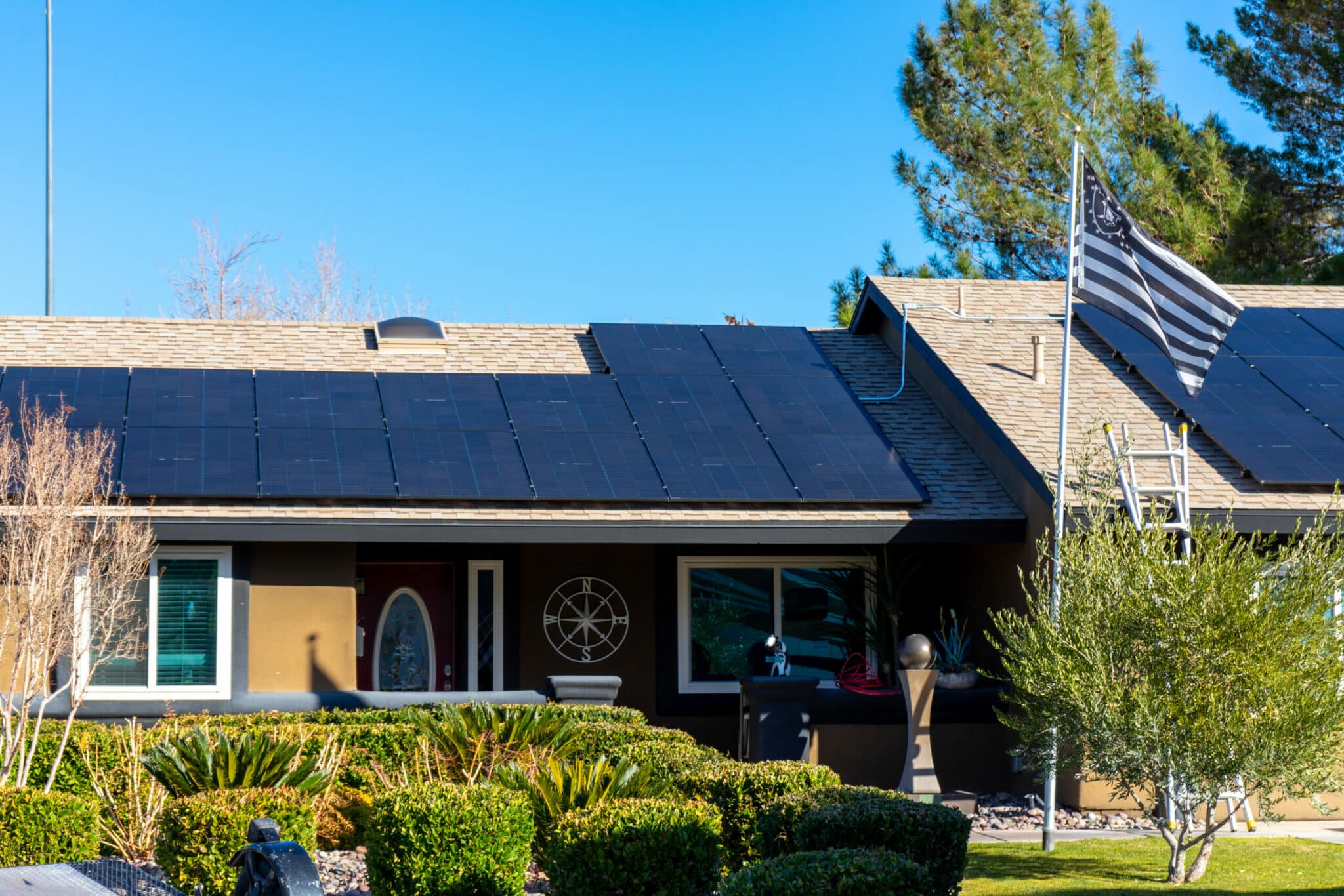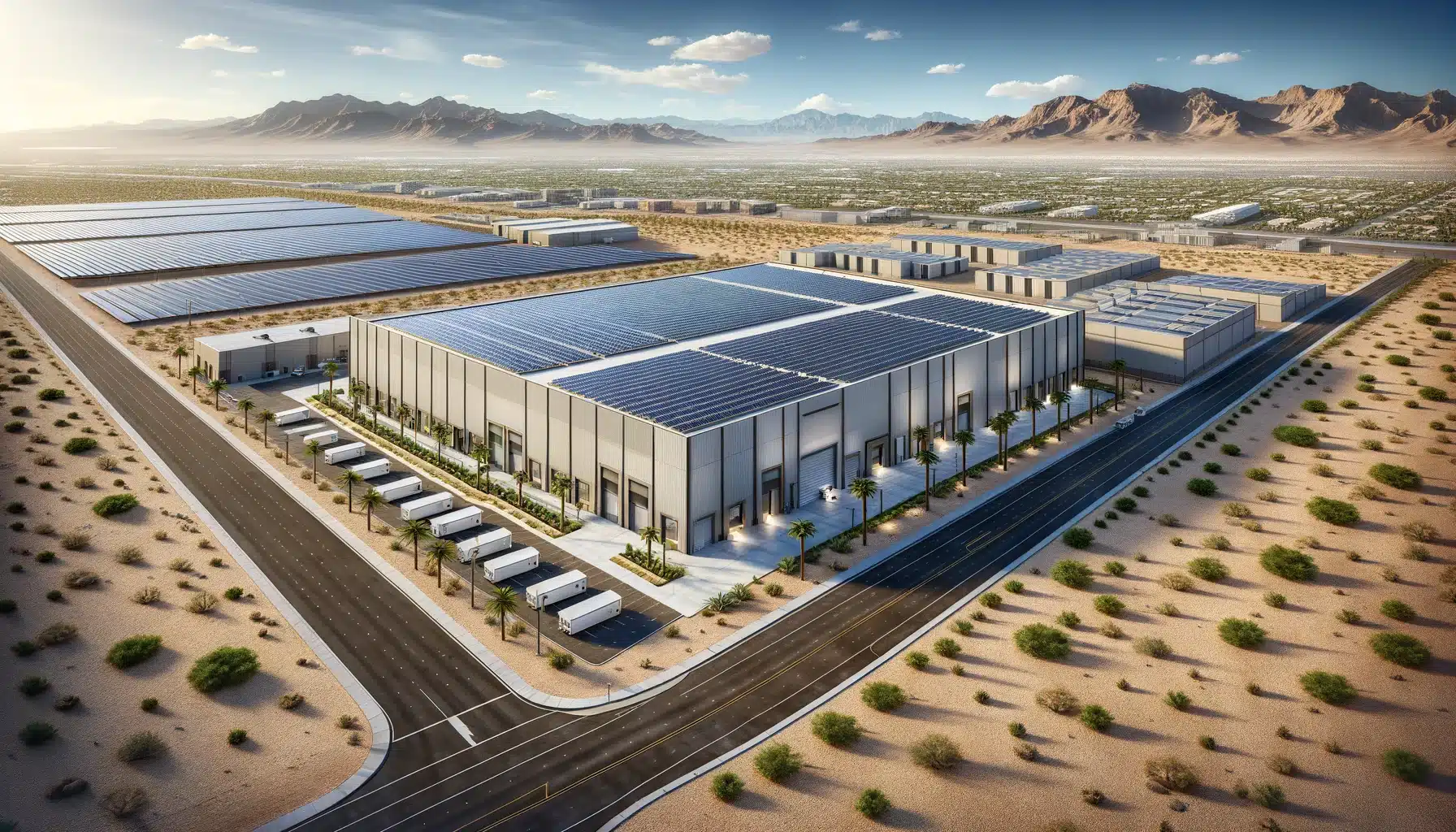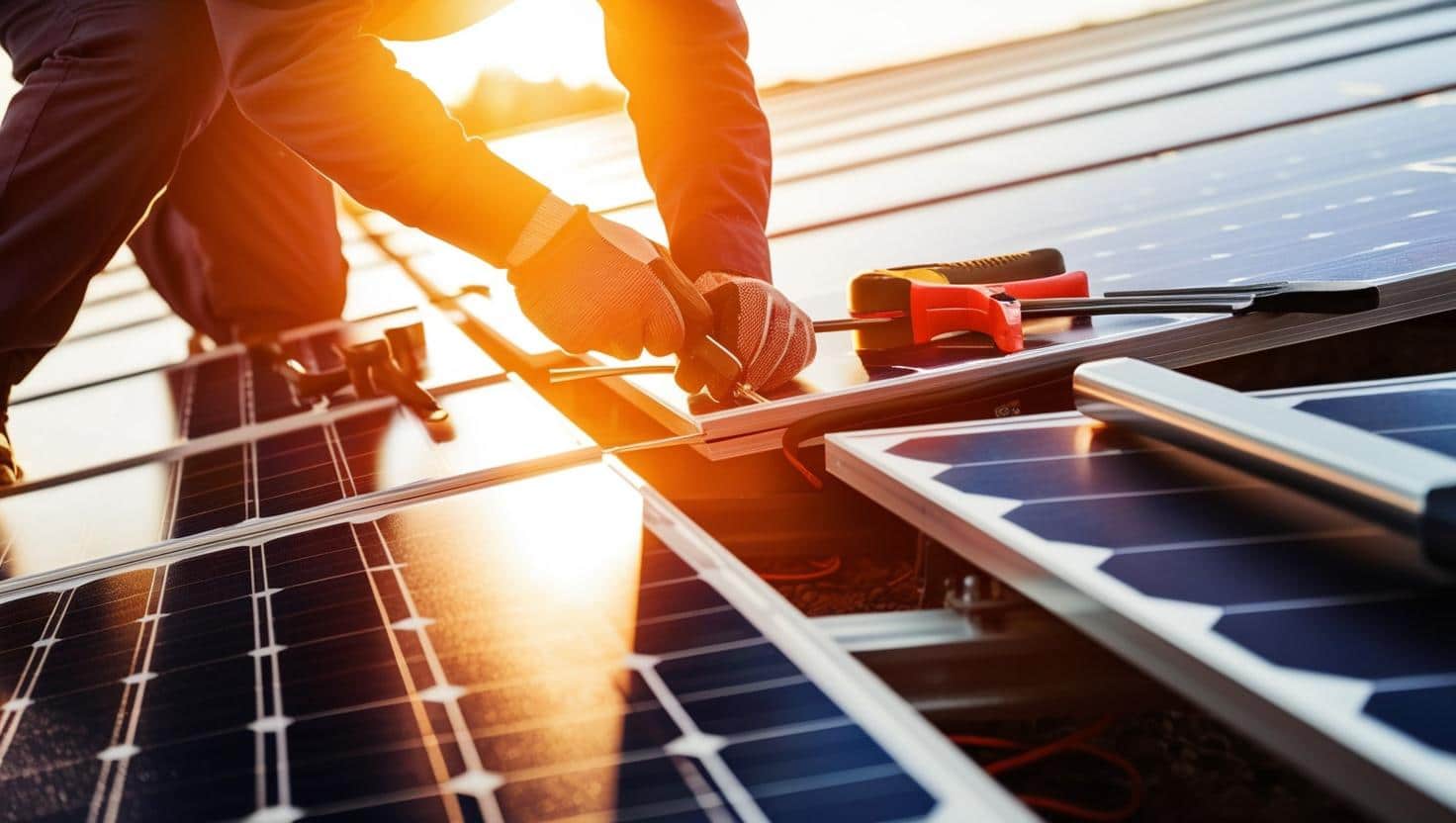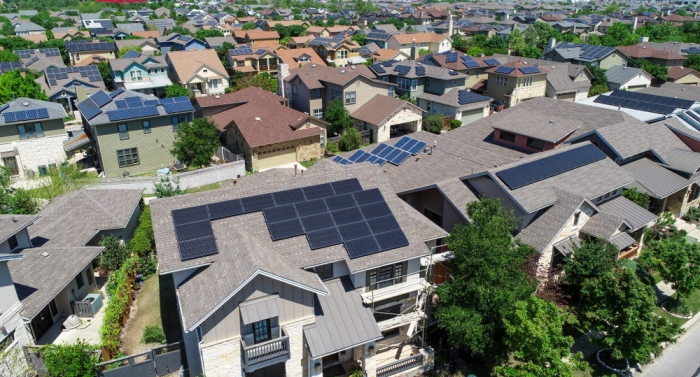Are solar panels worth it? In many cases, the answer is “yes!”
We want to be clear: Every home is different. In certain circumstances, solar panels may not always be the best choice. However, many homes benefit from the long-term energy savings and reduced dependence on the grid that a solar power system can offer.
For many homeowners, solar panels are in fact worth it. Let’s take a closer look at the benefits of solar panels. We’ll contrast those benefits with related costs and decide what “worth it” really means when it comes to solar panels.
Comparing Costs and Benefits of Solar Panels
Determining whether or not getting solar panels is worth it for you will depend on a variety of factors. While there are some universal benefits of going solar, other aspects of the process will be unique to you and your home.
In this section, we’ll explore a few of the things you should consider before taking the dive.
Initial Investment vs. Long-Term Savings
Installing a residential solar system typically costs between $16,000 to $36,000, depending on the state in which you live, which is a substantial initial investment for most people. However, there’s a reason it’s called an “investment”: there’s a return.
Most systems return roughly 10% on average and pay themselves off within the first eight to 12 years of installation. So, if you plan on using your system for at least that long, chances are that getting solar will definitely be worth it for you!
Environmental Impact and Sustainability
Solar panels offer a solution to environmental challenges by harnessing sunlight to generate clean, renewable energy. Unlike fossil fuels, solar power generation produces zero greenhouse gas emissions during operation, helping mitigate climate change and reduce our carbon footprint.
By transitioning to solar energy, we can significantly decrease our reliance on finite and polluting resources, promoting a more sustainable energy future for generations to come.
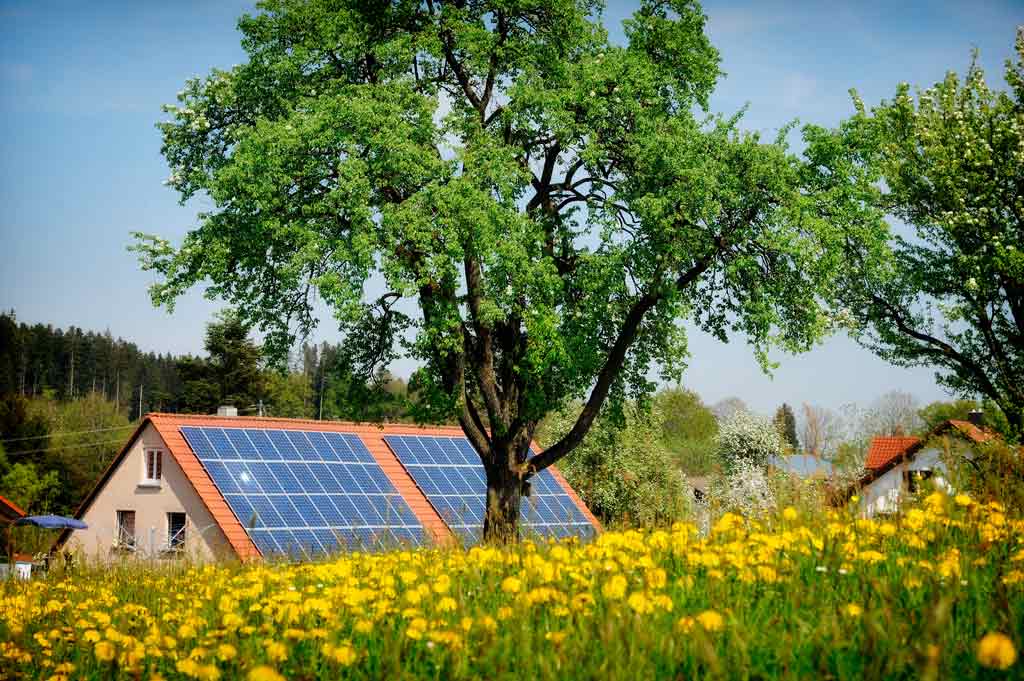
Moreover, solar panels play a crucial role in preserving ecosystems and protecting biodiversity. Unlike fossil fuel extraction, which often entails destructive practices like mountaintop removal or drilling in sensitive habitats, solar energy production has minimal environmental impact.
By harnessing the power of the sun, we can transition towards a cleaner, healthier future, where communities thrive in harmony with nature, making solar panels not only a financially wise investment but also a vital step towards a more sustainable and resilient world.
Increased Home Value
In addition to their environmental benefits, solar panels can significantly boost the value of residential properties. Studies have consistently shown that homes equipped with solar panels command higher prices and attract more potential buyers in the real estate market.
Solar installations are perceived as premium features that offer long-term cost savings on energy bills, making homes with solar panels more desirable and competitive.
Furthermore, solar-equipped homes often stand out as symbols of modernity and sustainability, appealing to environmentally conscious buyers seeking eco-friendly living spaces.
As a result, investing in solar panels not only yields financial returns through energy savings but also enhances the overall value and marketability of your home.
Maintenance and Durability Considerations
Maintaining solar panels is relatively hassle-free, requiring minimal effort and expense compared to other home investments.
High-quality panels are constructed with tempered glass and corrosion-resistant frames, ensuring longevity even in harsh environments, and engineered to withstand various weather conditions, including hail, snow, and high winds.
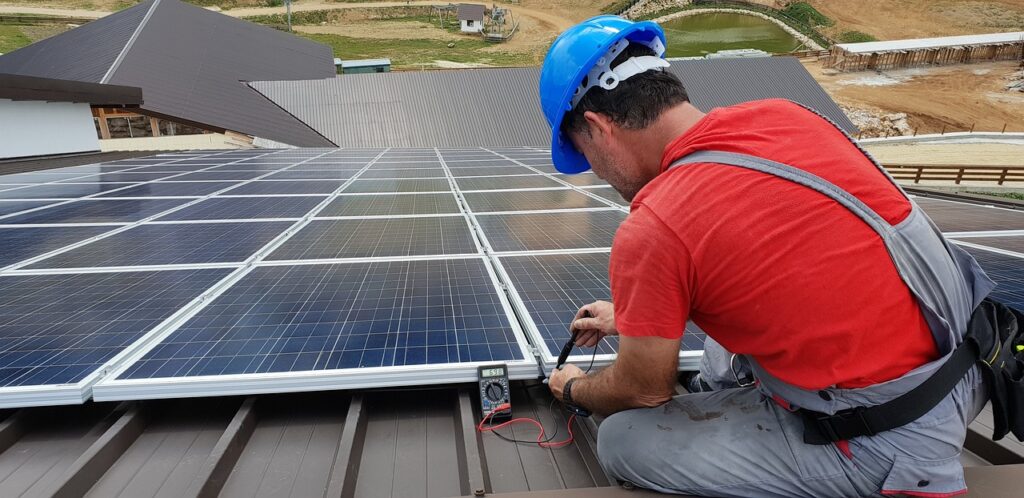
Routine maintenance involves occasional cleaning to remove dust, debris, or bird droppings that may accumulate on the panels and hinder performance. Fortunately, most solar panel installations are designed to be self-cleaning to some extent.
These systems often come with long-term warranties, spanning from 20 to 25 years, ensuring peace of mind for homeowners.
Overall, the low maintenance requirements and durability of solar panels underscore their worth as a long-term investment for homeowners seeking energy independence and sustainability.
Factors Influencing Cost-Effectiveness
Determining whether going solar is worth it will be a unique equation for everyone. The answer relies on a variety of factors, including:
- Sunlight Exposure – To get the most out of your solar system, you need a roof with the proper orientation towards the sun and minimal shading. States like Arizona, Nevada, and California are ideal for solar energy.
- Current Electricity Bill – Another factor that you must consider is how much you’re currently paying for electricity, on average. That way you’ll know how much money you’ll save by offsetting some or all of that usage with solar.
- Power Consumption – Along that same line of thinking, look into how much power you’re consuming each month. The higher your usage rates, the more home solar panels will be worth it.
- System Cost – Naturally, you must also account for how much your solar system will cost, both upfront and long-term. Will you have a warranty that covers maintenance costs? What will you be paying per solar kWh?
- Rebates and Tax Incentives – The Residential Clean Energy Credit renewed in 2022 allows households with solar to claim a tax credit worth 30% of their system cost against their taxes owed. The credit remains in effect through 2032.
- Financing Options – Another factor that can affect whether solar is worth it for you is the financing options available. Depending on your credit score and financial situation, some options may be better than others. Homeowners can choose to purchase their system outright, get a loan, lease, or a solar power purchase agreement (PPA).
Ultimately, deciding whether or not solar is worth it is entirely dependent upon your individual situation. As we’ve explored in this section, there is a wide range of factors worth considering including personal cost savings, the orientation of your home, tax credits, and the health of the planet.
Are Solar Panels Really Worth It in the Long Run?
When considering whether home solar panels are worth the investment, particularly in regions like Las Vegas, Nevada, where abundant sunshine is a given, the answer is a resounding yes!
Home solar panels are not only worth it in terms of financial savings but also in environmental impact and long-term value. Additionally, states like Nevada offer a variety of incentives and rebates for solar installations, further enhancing the financial feasibility of going solar.
Plus, the environmental benefits of solar panels cannot be overstated. Homeowners can significantly reduce their carbon footprint and contribute to a cleaner, more sustainable future.
In conclusion, whether you’re in Las Vegas, Nevada, or any other region with abundant sunshine, home solar panels are undoubtedly worth the investment. Not only do they offer substantial financial savings and environmental benefits, but they also contribute to long-term energy independence and resilience.


